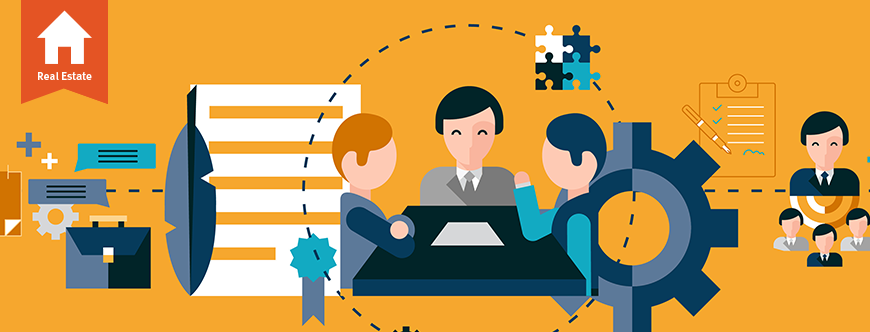
If you're interested in diversifying the investment portfolio, then you might want to know how to real-estate invest. Real estate investment is a good choice for many reasons. There are many risks to be aware of, as well as high potential returns. In addition to being risky, real estate requires maintenance and insurance. This article discusses the steps you should take in order to avoid common pitfalls. For beginners wanting to diversify their portfolio, this article provides valuable guidance.
Real estate investments are a good way for diversification in your investment portfolio.
Diversifying your investment portfolio through real estate investing is a great way to offset the risks of high-risk investments. Real estate can be used to diversify your portfolio. You will also benefit from cash-flow, appreciation, and substantial capital gain during retirement. Although investing in real estate may not be for everyone, it is an excellent choice for those who wish to minimize risk and earn significant returns.
Real estate is highly correlated with stocks and bonds. Its value tends to fluctuate after the rest. Every real estate market is different. Therefore, factors that affect the value of a property in one market might not have an impact on it in another. CFP Daniel Kern is the chief investment strategist at TFC Financial Management. He says it is a good idea to devote at least five to ten per cent of your total investment portfolio for real estate.

It is a smart financial decision
Real estate can be a viable option for diversifying your portfolio. There is very little correlation with stock markets, and many investors consider real estate a smart investment to reduce overall losses. But, it is not a guarantee and you could lose a lot despite the potential gains. This article will discuss some of the main benefits of investing in real estate. This article will also provide an overview of the different types of real estate, as well as a few different strategies for investing in it.
Real estate can be a bankable asset and provide steady income. Since you can borrow against the value of the property, you won't have to put down a large sum of cash upfront. You can also use money borrowed from banks to finance your investment. Low interest rates will allow you to enjoy the benefits of free money. Real estate investing can also provide tax benefits.
This requires a team of professionals
When building a team for your real estate ventures, it's important to have the proper professionals on your side. Do your research on all potential team members before you hire them. If possible, speak with references to get recommendations. You should also know your market, niche and strategy in order to get the best from your real estate team. Success is dependent on a cohesive team.
It is important to have a lawyer when you are investing in real estate. They will ensure that all documentation is in order and that any expulsions follow the law. For financial management and bookkeeping, you will need an experienced bookkeeper in real estate investment. Also, a marketing coordinator is a must-have. A team is essential for any real estate investment business.

There are many ways to do this.
There are many options for real estate investing. To purchase property, some people invest their own capital. Others form funds with others. You have the option to buy houses, rent them out, and renovate your homes with money borrowed from other people. You can either make a profit or lose money on your investment. Here are some methods to invest in real estate. These strategies come with varying levels of difficulty and rewards.
A great way to invest in real-estate is to purchase a house, fix it up and then sell it at a higher cost. This is the most lucrative strategy but it does require a lot more cash and time. Real estate investing can be lucrative if you have the patience to invest in the right properties. You can also invest in multiple properties and make a huge profit.
FAQ
Can I buy a house without having a down payment?
Yes! Yes. There are programs that will allow those with small cash reserves to purchase a home. These programs include conventional mortgages, VA loans, USDA loans and government-backed loans (FHA), VA loan, USDA loans, as well as conventional loans. More information is available on our website.
What are the downsides to a fixed-rate loan?
Fixed-rate loans have higher initial fees than adjustable-rate ones. If you decide to sell your house before the term ends, the difference between the sale price of your home and the outstanding balance could result in a significant loss.
How much does it cost to replace windows?
Windows replacement can be as expensive as $1,500-$3,000 each. The total cost of replacing all of your windows will depend on the exact size, style, and brand of windows you choose.
How many times do I have to refinance my loan?
This is dependent on whether the mortgage broker or another lender you use to refinance. You can typically refinance once every five year in either case.
How do I eliminate termites and other pests?
Your home will be destroyed by termites and other pests over time. They can cause severe damage to wooden structures, such as decks and furniture. A professional pest control company should be hired to inspect your house regularly to prevent this.
What can I do to fix my roof?
Roofs can become leaky due to wear and tear, weather conditions, or improper maintenance. Roofers can assist with minor repairs or replacements. Contact us to find out more.
Statistics
- Based on your credit scores and other financial details, your lender offers you a 3.5% interest rate on loan. (investopedia.com)
- This seems to be a more popular trend as the U.S. Census Bureau reports the homeownership rate was around 65% last year. (fortunebuilders.com)
- When it came to buying a home in 2015, experts predicted that mortgage rates would surpass five percent, yet interest rates remained below four percent. (fortunebuilders.com)
- The FHA sets its desirable debt-to-income ratio at 43%. (fortunebuilders.com)
- Over the past year, mortgage rates have hovered between 3.9 and 4.5 percent—a less significant increase. (fortunebuilders.com)
External Links
How To
How to buy a mobile home
Mobile homes are houses constructed on wheels and towed behind a vehicle. Mobile homes are popular since World War II. They were originally used by soldiers who lost their homes during wartime. People who want to live outside of the city are now using mobile homes. These houses are available in many sizes. Some houses are small, others can accommodate multiple families. Some are made for pets only!
There are two main types for mobile homes. The first is made in factories, where workers build them one by one. This takes place before the customer is delivered. The other option is to construct your own mobile home. You'll need to decide what size you want and whether it should include electricity, plumbing, or a kitchen stove. You will need to make sure you have the right materials for building the house. Final, you'll need permits to construct your new home.
If you plan to purchase a mobile home, there are three things you should keep in mind. You may prefer a larger floor space as you won't always have access garage. A larger living space is a good option if you plan to move in to your home immediately. The trailer's condition is another important consideration. It could lead to problems in the future if any of the frames is damaged.
It is important to know your budget before buying a mobile house. It's important to compare prices among various manufacturers and models. Also, take a look at the condition and age of the trailers. Although many dealerships offer financing options, interest rates will vary depending on the lender.
A mobile home can be rented instead of purchased. Renting allows you the opportunity to test drive a model before making a purchase. Renting is not cheap. Renters usually pay about $300 per month.